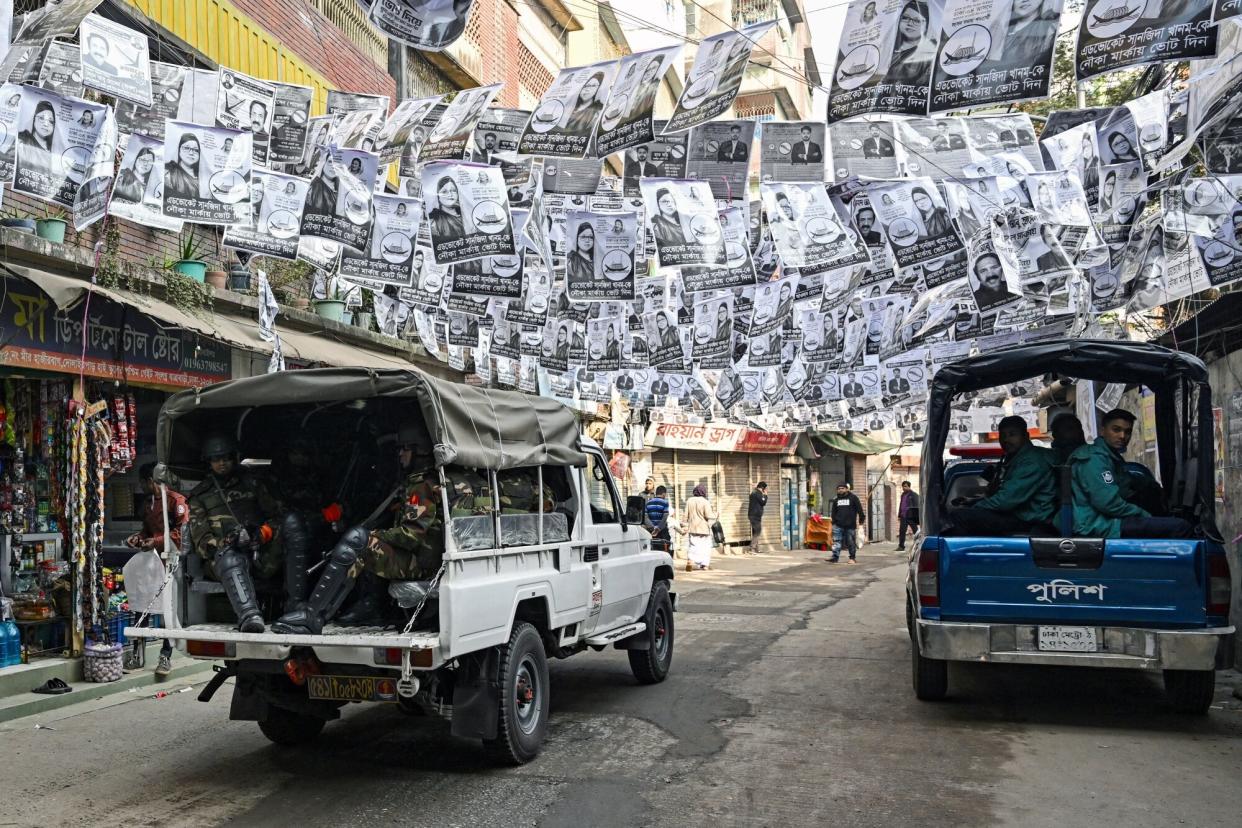Bangladesh PM to Extend Her Rule in Polls Shunned by Rivals

- Oops!Something went wrong.Please try again later.
- Oops!Something went wrong.Please try again later.
(Bloomberg) -- Bangladesh Prime Minister Sheikh Hasina is on course to extend her rule and retain her title as the world’s longest serving female head of government after polling closed in an election boycotted by her rivals and voters.
Most Read from Bloomberg
Boeing Slumps After Panel Blowout Leads to Partial 737 Grounding
IPhone Survives 16,000-Foot Fall, Helps Steer Jet-Panel Hunt
Chinese Billionaire Is Second-Biggest Foreign Owner of US Land
Hasina’s Awami League Party is expected to take the lead when early results trickle in and the Election Commission has put the turnout at about 40%. It’s a sharp drop from the 80% participation in polls in 2018, as voters heeded a campaign by the opposition Bangladesh Nationalist Party to shun the election and draw attention to the sweeping crackdown her government carried out in the run up to the polls.
“We have not received major complaints of irregularities, except some,” Chief Election Commissioner Kazi Habibul Awal told reporters in the capital Dhaka.
The vote was the culmination of a monthlong campaign beset by daily street protests, the jailing of Nobel Peace Prize winner Muhammad Yunus and viral videos of ruling party leaders pushing voters to cast ballots or risk losing government benefits.
Dhaka was deserted with heavy security around voting centers. There were few reports of clashes between opposition supporters and police officials although a bomb went off at a polling station in the capital, injuring four people.
Hasina, 76, asked voters to exercise their democratic rights and support the development of the South Asian country as she cast her ballot earlier in the day.
“I’m determined to make sure that democracy continues,” Hasina, flanked by her daughter and sister, told reporters. “Without democracy, development work can’t continue.”
Hasina, who is on course for a fourth straight term in power, has overseen one of the fastest-growing economies in the world and lifted millions out of poverty as part of her development agenda — achievements often overshadowed by her turn to authoritarianism.
Still, the economy is struggling with dollar shortages, which has prompted Moody’s Investors Service and others to downgrade Bangladesh’s credit ratings. The government was earlier forced to turn to the International Monetary Fund for $4.7 billion in emergency loans after the pandemic and soaring commodity prices depleted foreign exchange reserves.
About 120 million people were eligible to vote for 300 of the 350 seats in parliament. In recent weeks, prominent leaders from Hasina’s Awami League party have been shown on social media video clips telling voters that they risked losing their benefits if they didn’t take part in the elections.
The main opposition Bangladesh Nationalist Party has boycotted the national vote in response to Hasina refusing to step aside and allowing a caretaker government to run the poll. The dispute has led to street battles between the opposition group, security forces and supporters of Awami League.
On the eve of the national vote BNP Senior Joint Secretary General Ruhul Kabir Rizvi called for voters to boycott the election to mark the “downfall” of Hasina’s government, according to the Daily Star newspaper. The Awami League is targeting 50% turnout and has allowed some of its leaders to contest as independents to spur voter interest, the paper reported.
Police arrested several opposition leaders in the months before the election. Hasina’s main rival and BNP leader Khaleda Zia faces suspended jail sentences on graft charges that her supporters say are trumped up.
Human Rights Watch said in a November report that almost 10,000 opposition activists have been arrested since a planned rally by the BNP on Oct. 28. Nobel winner Yunus was given a six-month jail sentence by a Dhaka court last week in a case his supporters say was politically motivated.
--With assistance from Sankalp Phartiyal.
(Updates throughout)
Most Read from Bloomberg Businessweek
Tropical Underworld: The Murder Case That Could Topple an Alleged Crime Empire
Private Equity’s Horrible, No-Good ’23 Set to Continue Into ’24
Can Biden Convince Americans His Brand of Populism Is Better Than Trump’s?
Everyone Wants a Piece of the NBA’s New National TV Contract
©2024 Bloomberg L.P.


